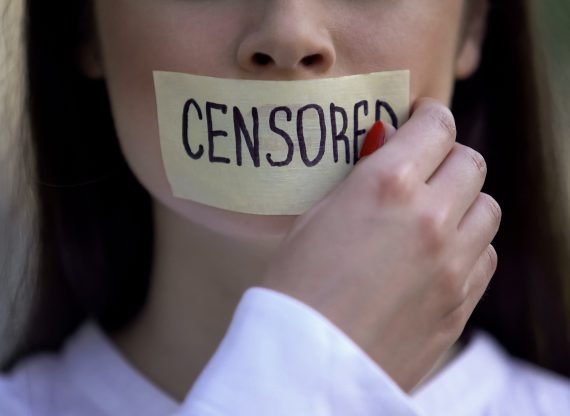Freedom of expression is under attack in Canada

Our freedom of expression is under attack. In recent years, there’s been a significant trend toward censorship in the media, in academia, and among the general population. The controversy at the University of Ottawa over the use of the N-word is one example among others. Why do we need to worry about this trend? For one thing, an attack on our freedom of expression is also an attack on our standard of living.
The virtues of freedom of expression are widely recognized: It improves the quality of our democratic institutions, facilitates the exchange of ideas, and leads to sounder, more transparent public policies.
But aside from these benefits, there is also a strong link between freedom of expression and economic growth. This is confirmed by the economic literature and by many academic papers from different researchers at Stanford University, Dartmouth College, and the University of California, Berkeley, who all arrive at the same conclusion: The exchange of ideas stimulates innovation, and innovation is one of the main engines of economic growth and rising living standards.
Encouraging the exchange of ideas and the protection of freedom of expression is therefore intuitively beneficial, and this is confirmed by the scientific literature. But concretely, what would the average Canadian stand to gain if our governments put in place public policies encouraging greater freedom of expression?
According to our calculations and our econometric model, individual Canadians would be an average of $2,522 richer each year. Obviously, this amount wouldn’t be deposited directly into one’s bank account, but rather, a gradual increase in our living standards would result from the effects of more freedom of expression.
In the sample of 132 countries used in our study, Canada is among the top 15 per cent in terms of freedom of expression. But while it is true that we live in a relatively free society, taking this good ranking for granted would be a mistake.
Indeed, governments have a lot of room to grow when it comes to improving freedom of expression, especially if we compare ourselves to Norway, the top country in the ranking. There, it is standard practice for politicians to make constant efforts, encouraged by citizens, to better protect freedom of expression.
In contrast, in Canada, and especially in certain provinces like Quebec, the government can arbitrarily decide to subsidize one media outlet rather than another, which can potentially hinder media independence and lead to biased and less reliable information. Not to mention that it is increasingly difficult to obtain information from our governments through requests for access to information, which hampers proper public debate. This situation should alarm us.
In order to improve the country’s performance in terms of freedom of expression, thereby also improving our standard of living, we have three recommendations:
- Favour media independence from government by limiting arbitrary subsidies and, in their place, creating a regulatory and fiscal framework favourable to all media;
- Encourage Canadian public universities to protect freedom of expression in order to truly allow their researchers, professors, and students to express themselves freely without risk of reprisals;
- Increase the information and data available to the population by reducing the need to make requests for access to information, in order to facilitate public debate.
While Canada is a relatively free country, the pandemic has exacerbated our pre-existing shortcomings in terms of freedom of expression. We must not allow the current situation to become the new normal. For the sake of our standard of living and the wealth of our country, we must do more to promote and protect the freedom of expression of all Canadians.
Miguel Ouellette est directeur des opérations et économiste à l’IEDM, Maria Lily Shaw est économiste à l’IEDM. Ils sont les auteurs de « Le Canada doit protéger et encourager davantage la liberté d’expression » et signent ce texte à titre personnel.

